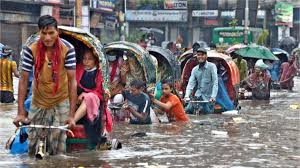The globe recently accomplished a significant step towards making up for the deaths caused by heat waves, droughts, and floods.
Seen as a significant opening day achievement at this year’s U.N. climate conference, nearly all of the world’s governments completed the foundation of a fund on Thursday to help pay countries suffering to cope with loss and damage caused by climate change. Some nations immediately began contributing funds, but insufficiently in comparison to the total expected need.
The United Arab Emirates, which is hosting the COP28 climate conference in Dubai, will contribute $100 million to the fund. Sultan al-Jaber, the conference president, praised “the first decision to be adopted on day one of any COP.” Germany was among the other nations that made significant promises, contributing $100 million as well.
Developing countries are disproportionately affected by climate change and bear little responsibility for it because industrialized nations emit carbon that traps heat in the atmosphere. They have long sought to address the issue of insufficient funding for responding to these disasters.
However, several issues about the “loss and damage funds” remained unanswered, including their size and administrator.
According to a recent UN analysis, developing nations will require up to $387 billion a year to adapt to the changes brought on by climate change.
Some professionals and campaigners doubt that the fund will raise even a fraction of that amount. The $100 billion yearly target set for the Green Climate Fund, which was first suggested during the 2009 climate conference in Copenhagen and started raising funds in 2014, has not even been approached.
The World Bank will serve as the fund’s host for the next four years, with a 2024 launch date planned. Its board will include representatives from developing nations.
Although any community or nation affected by climate change is eligible, some developed nations have insisted that all nations should contribute to the fund. As a result, the accord will give priority to those who are most susceptible to the effects of climate change.

















